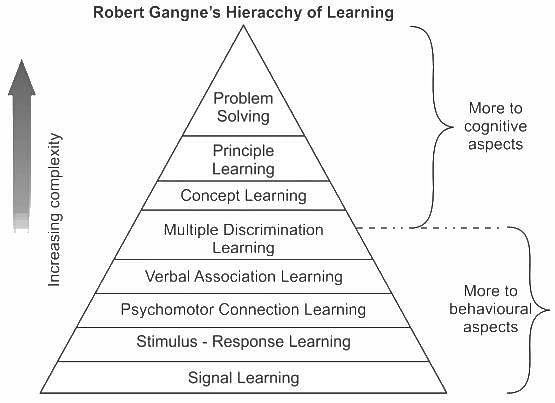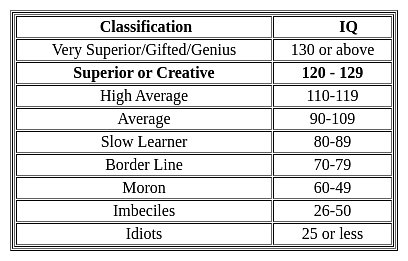UGC NET Paper 2 Education Mock Test - 3 - UGC NET MCQ
30 Questions MCQ Test UGC NET Mock Test Series 2024 - UGC NET Paper 2 Education Mock Test - 3
In the Indian social system as it obtains today, the goal of equality and excellence will not be viewed as two opposite poles in terms of whose philosophy?
__________ can be viewed as an arrangement of materials prepared in advance and intended for instruction.
| 1 Crore+ students have signed up on EduRev. Have you? Download the App |
Consider the following statements:
I. NPE 1968 was based on the recommendations of Education Commission.
II. It required a “radical restructuring” and equalizing educational opportunities in order to achieve national integration.
According to Gagne which of the following represents the correct sequence of a type of learning?
i. Multiple discrimination
ii. Principle learning
iii. Establishing S-R connection
iv. Problem-solving
A procedure intended to establish the quality, performance or reliability of something is known as
Which of the following are the fundamental duties?
(a) To respect the National Flag.
(b) To protect and improve the natural environment.
(c) For a parent to provide opportunities for education to his/her child.
(d) To protect monuments and places of national importance.
Select the correct answer from the codes given :
Assertion (A): The purpose of higher education is to promote critical and creative thinking abilities among students.
Reason (R): These abilities ensure job placements.
Choose the correct answer from the following code :
What is the importance of having developed senses?
According to Radhakrishnan Commission, the aim of Higher Education is:
Effective teaching principles heads are..........
The English tried to discourage Muslims politically socially and..........
The quality of test that measures ''what it claims to measure'' is?
What wass designed for the physical Education?
A test very popular with class room teacher is?
Observational learning is also called
I. Vicarious learning
II. Social learning
III. Modelling
According to the passage, what is a seemingly contradictory situation?
Assertion (A): A teacher should not cater to individual differences in the class.
Reason (R): The purpose of progressive education is to ensure that all children are instructed in a uniform manner and assessed by standard methods.
Choose the correct option.
According to psychologists, value is primarily concerned with:
If a child is a back bencher and unable to watch the blackboard clearly. As a result he stands, sees and sits repeatedly. What inference will you draw regarding the case?
The current view of childhood assumes that.
A normal child of twelve years of age is most likely to.
|
16 docs|120 tests
|



















